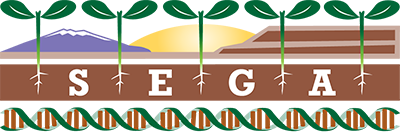You are here
Patterns of phytochemical variation in Mimulus guttatus (yellow monkeyflower).
Publication Type:
Journal ArticleSource:
Journal of chemical ecology, Volume 39, Issue 4, p.525 - 36 (2013)ISBN:
0098-0331URL:
http://www.ncbi.nlm.nih.gov/sites/entrez?Db=pubmed&DbFrom=pubmed&Cmd=Link&LinkName=pubmed_pubmed&LinkReadableName=Related%20Articles&IdsFromResult=23468225&ordinalpos=3&itool=EntrezSystem2.PEntrez.Pubmed.Pubmed_ResultsPanel.Pubmed_RVDocSumhttp://www.ncbi.Keywords:
Animals, Biological Evolution, Butterflies, Genetic Variation, Glucosides, Glycosides, Herbivory, Larva, Mimulus, Phenols, Phenotype, Pheromones, Plant LeavesAbstract:
<p>The search for general patterns in the production and allocation of plant defense traits will be facilitated by characterizing multivariate suites of defense, as well as by studying additional plant taxa, particularly those with available genomic resources. Here, we investigated patterns of genetic variation in phytochemical defenses (phenylpropanoid glycosides, PPGs) in Mimulus guttatus (yellow monkeyflower). We grew plants derived from several natural populations, consisting of multiple full-sibling families within each population, in a common greenhouse environment. We found substantial variation in the constitutive multivariate PPG phenotype and in constitutive levels of individual phytochemicals within plants (among leaves of different ages), within populations (among full-sibling families), and among populations. Populations consisting of annual plants generally, but not always, had lower concentrations of phytochemicals than did populations of perennial plants. Populations differed in their plastic response to artificial herbivory, both in the overall multivariate PPG phenotype and in the individual phytochemicals. The relationship between phytochemistry and another defense trait, trichomes, differed among populations. Finally, we demonstrated that one of the PPGs, verbascoside, acts as a feeding stimulant rather than a feeding deterrent for a specialist herbivore of M. guttatus, the buckeye caterpillar (Junonia coenia Nymphalidae). Given its available genetic resources, numerous, easily accessible natural populations, and patterns of genetic variation highlighted in this research, M. guttatus provides an ideal model system in which to test ecological and evolutionary theories of plant-herbivore interactions.</p>
- Log in to post comments
- Google Scholar
- RTF
- EndNote XML
- RIS
Theme by Danetsoft and Danang Probo Sayekti inspired by Maksimer
